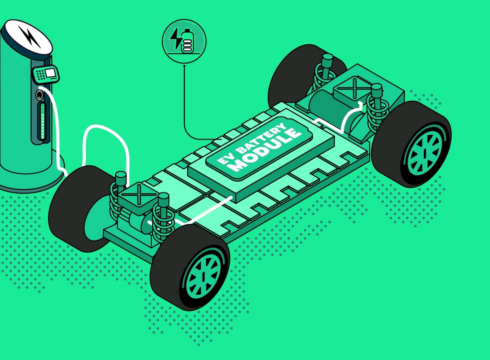The amended testing norms will be implemented in two phases, with phase 1 effective from December 1, 2022, and phase 2 coming into effect from March 31, 2023
The Road Transport Ministry said that the timeline has been extended to ensure that the OEMs are better equipped to comply and implement the new standards
The amended AIS 156 and AIS 038 Rev.2 standards include additional safety requirements related to EV battery cells, Battery Management System, battery pack design, among others
Inc42 Daily Brief
Stay Ahead With Daily News & Analysis on India’s Tech & Startup Economy
The government has extended the deadline for the implementation of new battery testing norms for electric vehicles (EVs) from October 1, 2022 earlier, and the norms will now come into effect in two phases.
The phase 1 of the amended testing norms will come into effect from December 1, 2022, while phase 2 will be effective from March 31, 2023, the Ministry of Road Transport & Highways said in a statement.
Following several EV fire incidents in the country this year, the ministry last month mandated the amended AIS 156 and AIS 038 Rev.2 standards for different EV categories. The additional safety requirements recommended in the existing battery safety standards were to come into effect from October 1.
However, the ministry said on Tuesday (September 27) that the deadline for implementing the new norms has been extended to ensure that the Original Equipment Manufacturers (OEMs) are better equipped to comply and implement the provisions prescribed under the standards AIS-156 and AIS 038 (Rev 2).
The amended AIS 156 and AIS 038 Rev.2 standards include additional safety requirements related to EV battery cells, Battery Management System (BMS), battery pack design, on-board charger, thermal propagation, among others.
As per reports, the OEMs had sought more time to comply with the new battery testing norms.
Two-wheeler EVs of a number of OEMs, including Ola Electric, Okinawa Autotech, and Pure EV, were involved in fire incidents earlier this year, especially during the scorching summer days. Escooter manufacturer Gemopai became the latest addition to the list earlier this month when a fire at its escooter recharging unit in Secunderabad led to the death of at least eight people.
Meanwhile, the demand for escooters is on the rise in the country. Electric two-wheeler registrations in the country crossed the 50,000 mark last month for the first time since March.
The trend is expected to continue going ahead. Consulting firm McKinsey & Company recently forecasted that the share of EVs in new two-wheeler and three-wheeler vehicle sales would rise to 50% and 70%, respectively, in the country by 2030.
Note: We at Inc42 take our ethics very seriously. More information about it can be found here.


